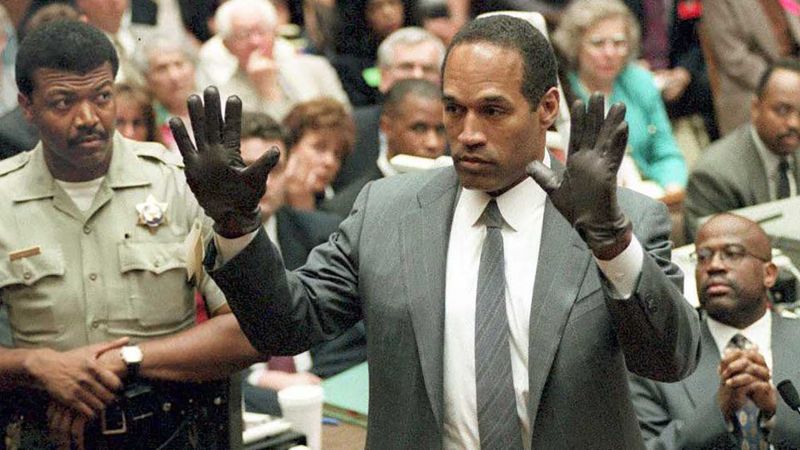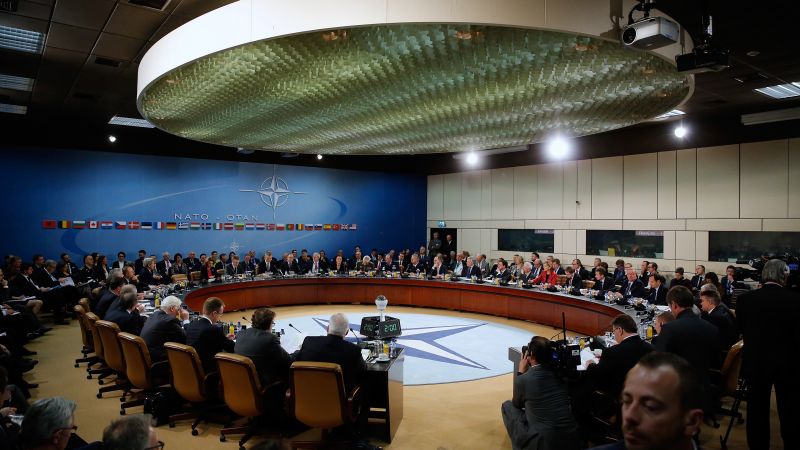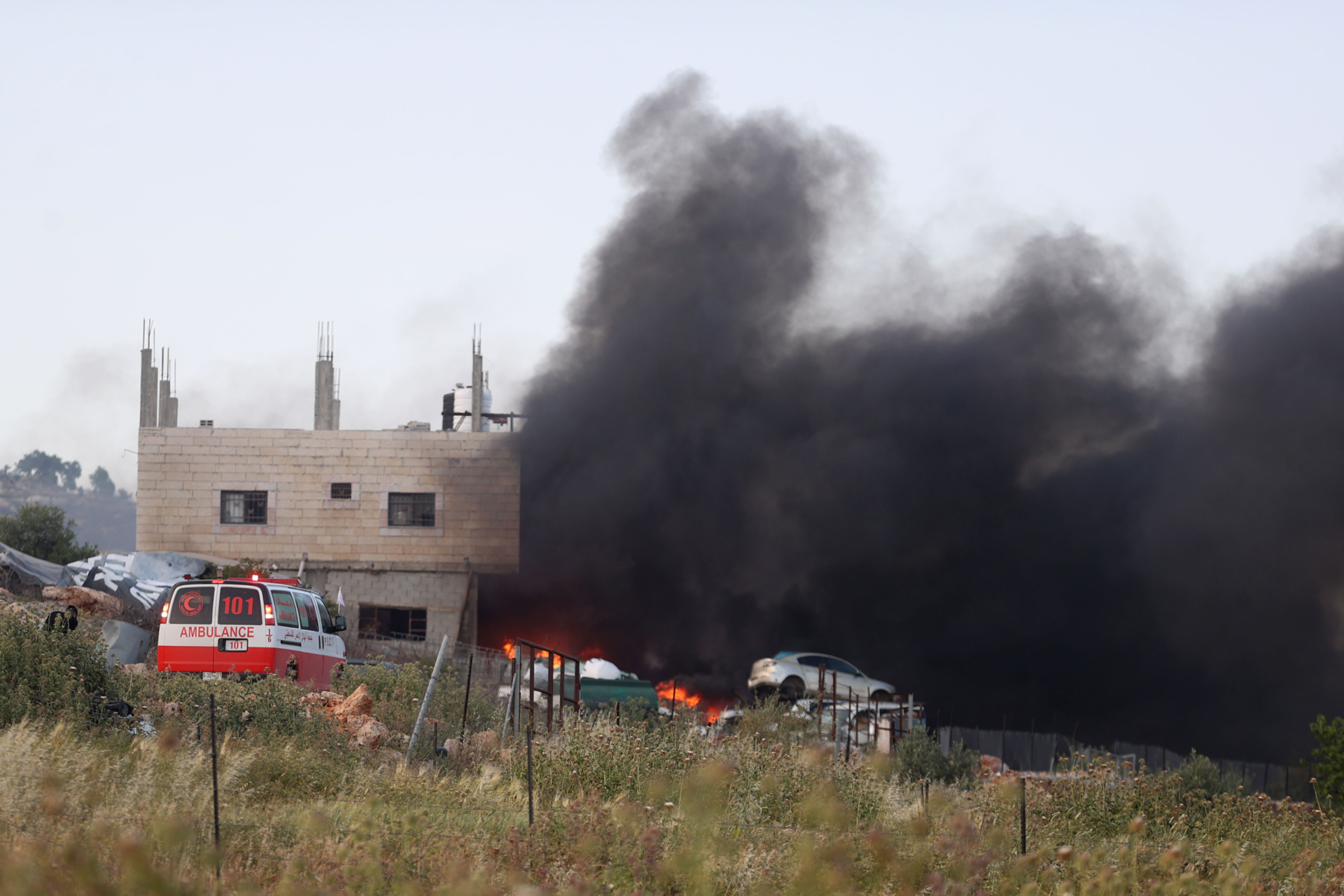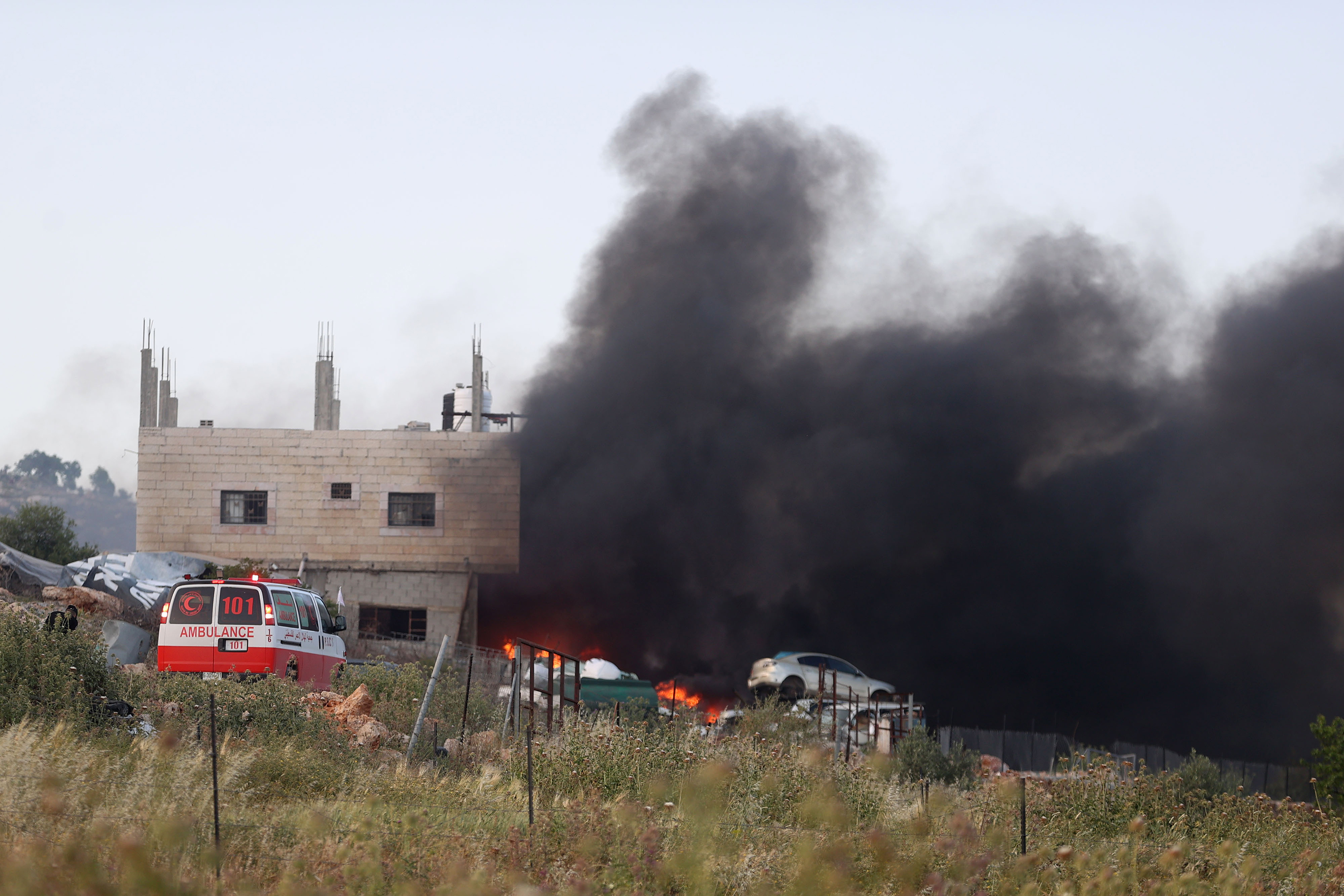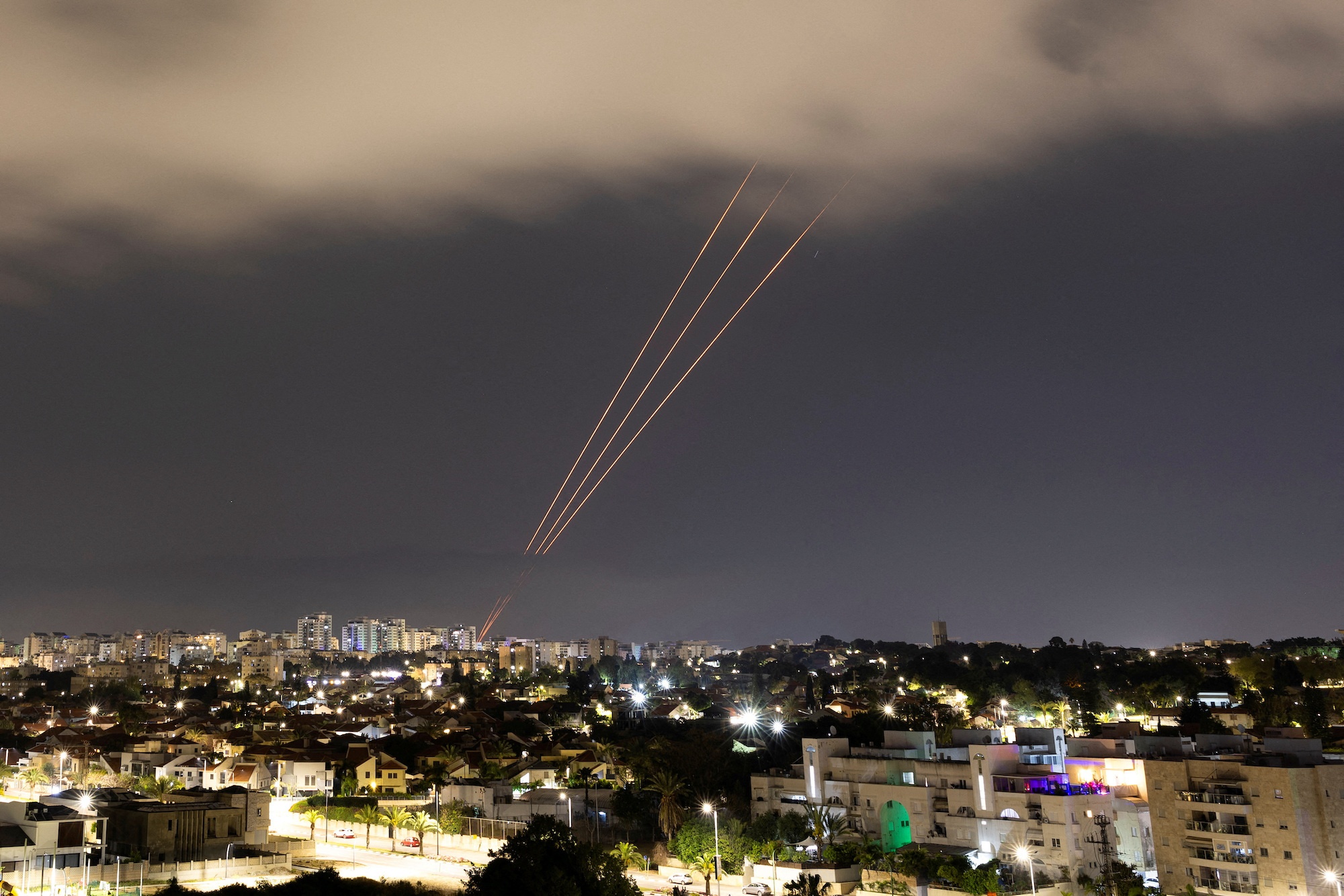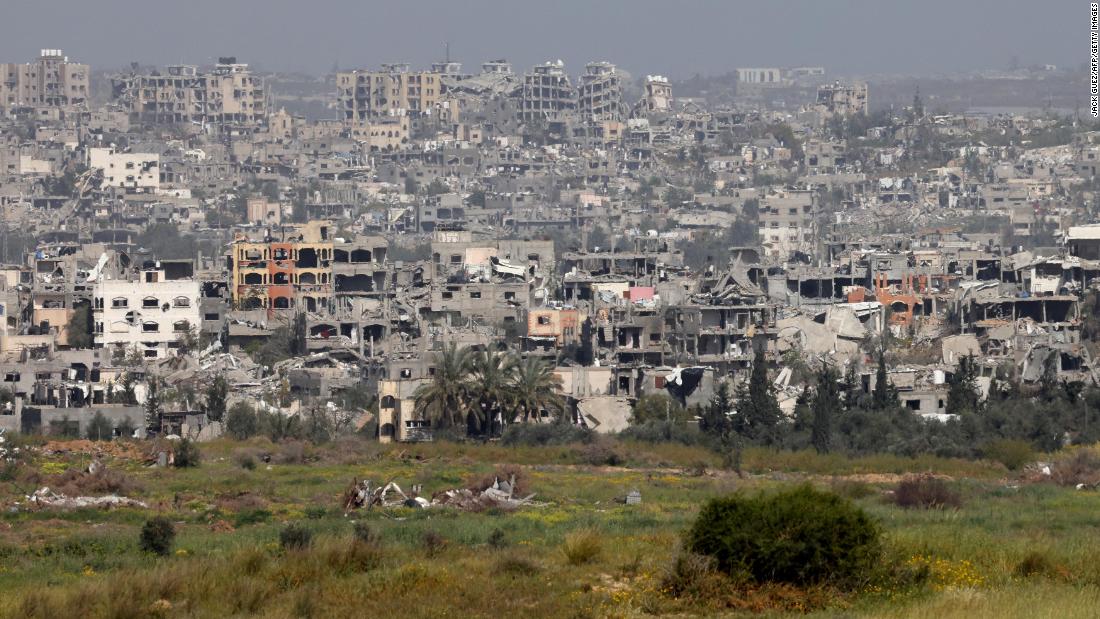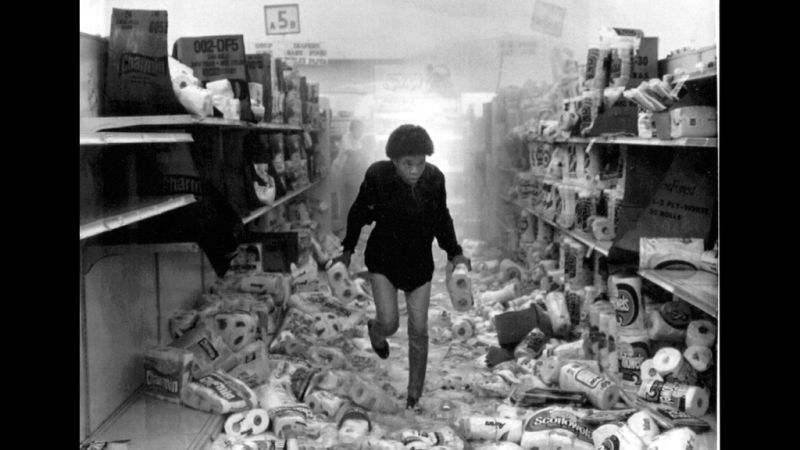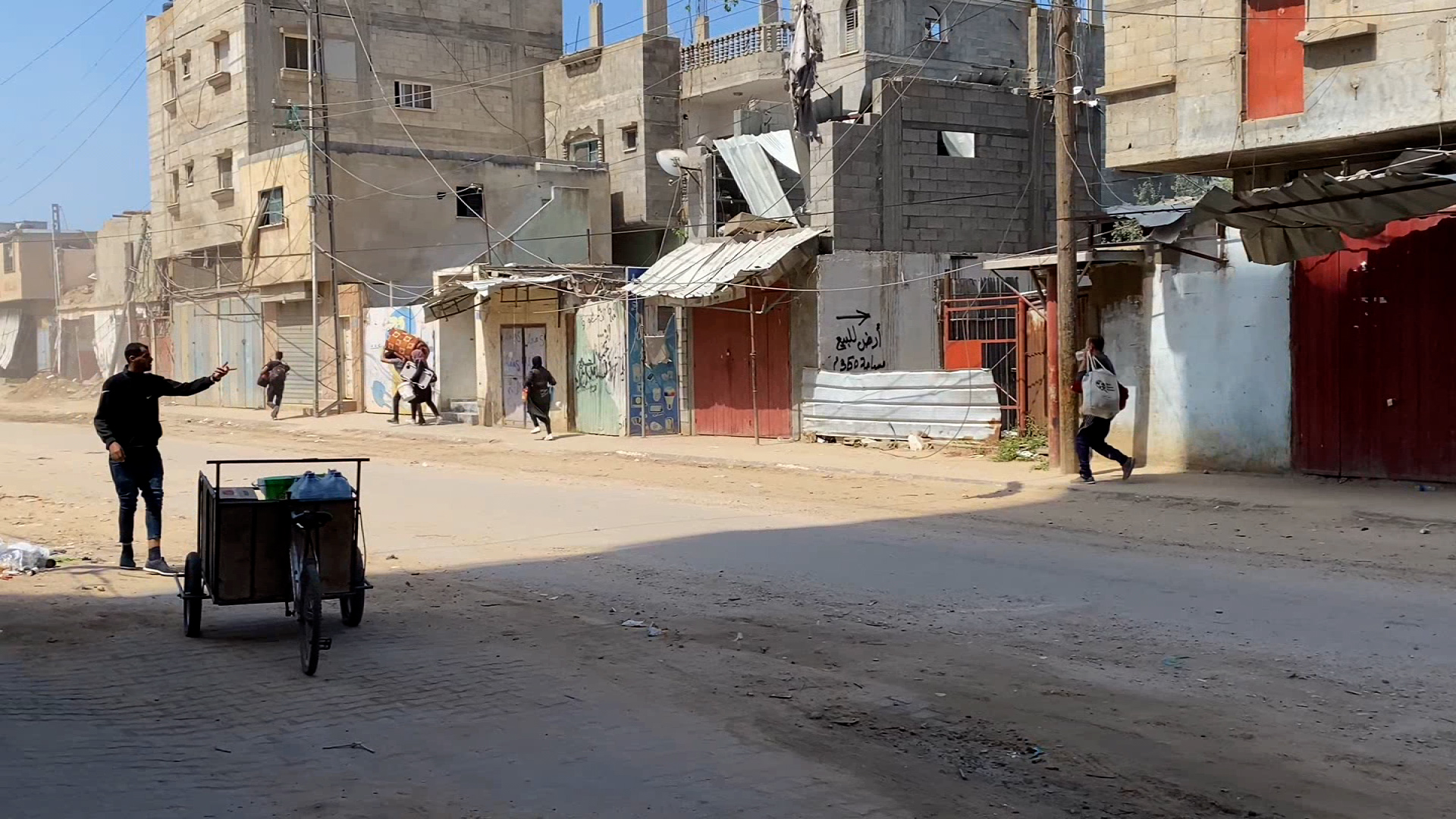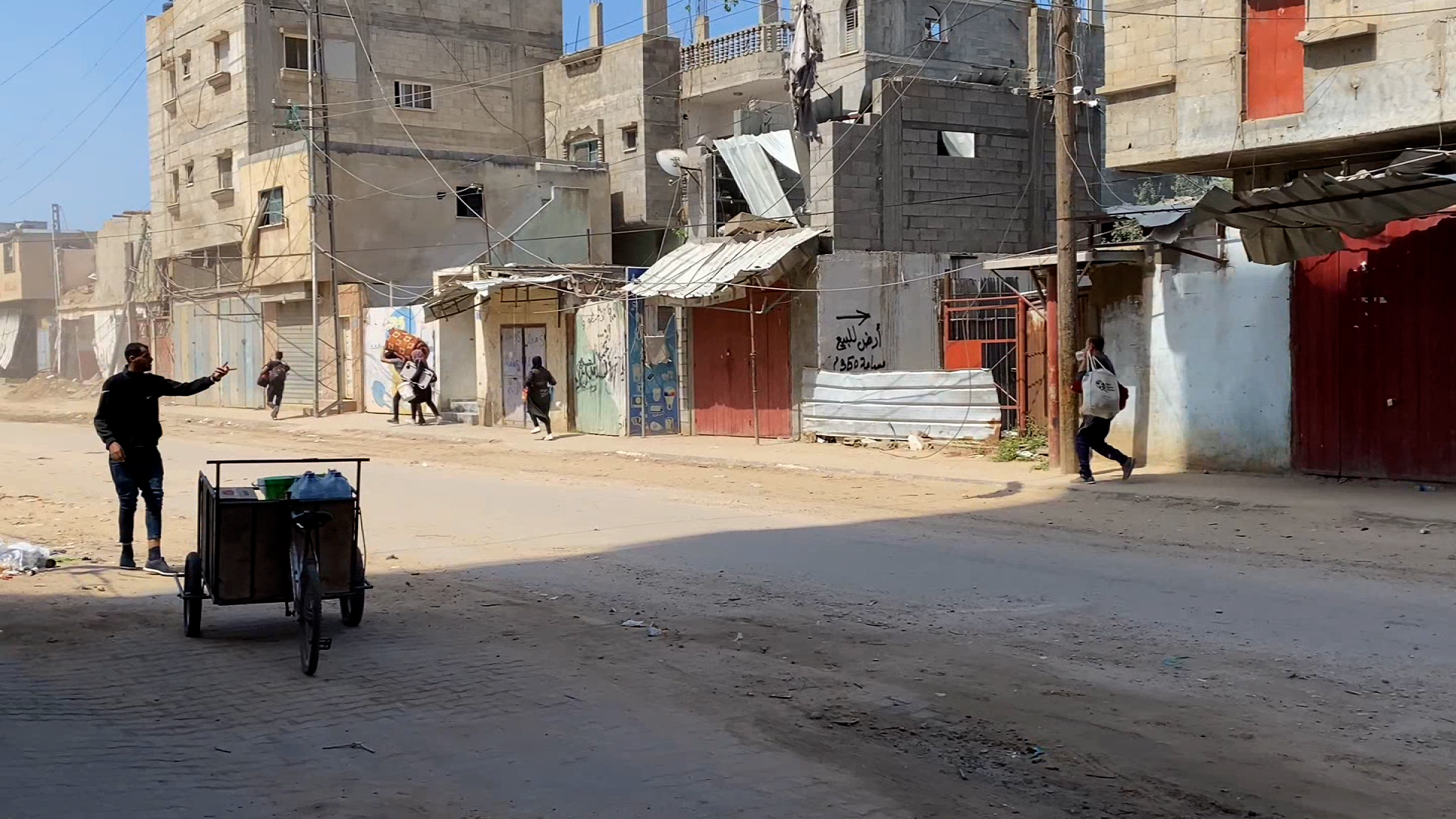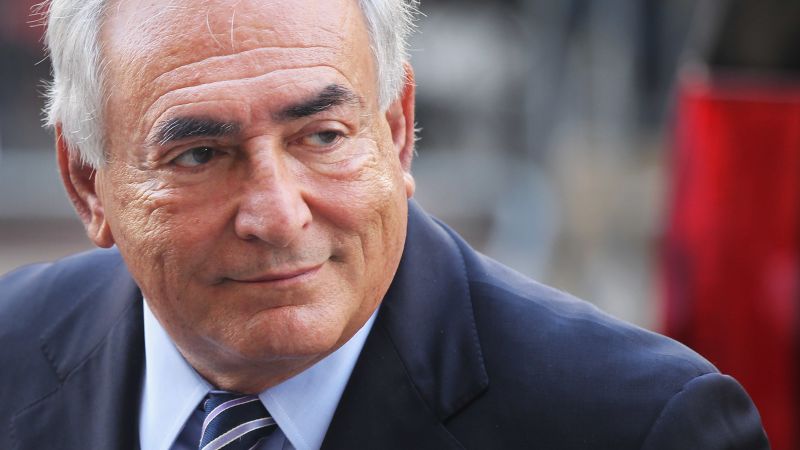CNN
—
Here’s a look at controversial police encounters that have prompted protests over the past three decades. This select list includes cases in which police officers were charged or a grand jury was convened.
March 3, 1991 – LAPD officers beat motorist Rodney King after he leads police on a high-speed chase through Los Angeles County. George Holliday videotapes the beating from his apartment balcony. The video shows police hitting King more than 50 times with their batons. Over 20 officers are present at the scene, mostly from the LAPD. King suffers 11 fractures and other injuries.
March 15, 1991 – A Los Angeles grand jury indicts Sergeant Stacey Koon and Officers Laurence Michael Powell, Timothy Wind and Theodore Briseno in connection with the beating.
May 10, 1991 – A grand jury refuses to indict 17 officers who stood by at the King beating and did nothing.
April 29, 1992 – The four LAPD officers are acquitted. Riots break out at the intersection of Florence and Normandie in South Central Los Angeles. Governor Pete Wilson declares a state of emergency and calls in the National Guard. Riots in the next few days leave more than 50 people dead and cause nearly $1 billion in property damage.
May 1, 1992 – King makes an emotional plea for calm, “People, I just want to say, can we all get along? Can we get along? Can we stop making it horrible for the older people and the kids?”
August 4, 1992 – A federal grand jury returns indictments against Koon, Powell, Wind, and Briseno on the charge of violating King’s civil rights.
April 17, 1993 – Koon and Powell are convicted for violating King’s civil rights. Wind and Briseno are found not guilty. No disturbances follow the verdict. On August 4, both Koon and Powell are sentenced to 30 months in prison. Powell is found guilty of violating King’s constitutional right to be free from an arrest made with “unreasonable force.” Koon, the ranking officer, is convicted of permitting the civil rights violation to occur.
April 19, 1994 – King is awarded $3.8 million in compensatory damages in a civil lawsuit against the City of Los Angeles. King had demanded $56 million, or $1 million for every blow struck by the officers.
June 1, 1994 – In a civil trial against the police officers, a jury awards King $0 in punitive damages. He had asked for $15 million.
June 17, 2012 – King is found dead in his swimming pool.
November 5, 1992 – Two white police officers approach Malice Wayne Green, a 35-year-old black motorist, after he parks outside a suspected drug den. Witnesses say the police strike the unarmed man in the head repeatedly with heavy flashlights. The officers claim they feared Green was trying to reach for one of their weapons. Green dies of his injuries later that night.
November 16, 1992 – Two officers, Larry Nevers and Walter Budzyn, are charged with second-degree murder. Sgt. Freddie Douglas, a supervisor who arrived on the scene after a call for backup, is charged with involuntary manslaughter and willful neglect of duty. These charges are later dismissed. Another officer, Robert Lessnau, is charged with assault with intent to do great bodily harm.
November 18, 1992 – The Detroit Free Press reports that toxicology tests revealed alcohol and a small amount of cocaine in Green’s system. A medical examiner later states that Green’s head injuries, combined with the cocaine and alcohol in his system, led to his death.
December 1992 – The Detroit police chief fires the four officers.
August 23, 1993 – Nevers and Budzyn are convicted of murder after a 45-day trial. Lessnau is acquitted. Nevers sentence is 12-25 years, while Budzyn’s sentence is 8-18 years.
1997-1998 – The Michigan Supreme Court orders a retrial for Budzyn due to possible jury bias. During the second trial, a jury convicts Budzyn of a less serious charge, involuntary manslaughter, and he is released with time served.
2000-2001 – A jury finds Nevers guilty of involuntary manslaughter after a second trial. He is released from prison in 2001.
August 9, 1997 – Abner Louima, a 33-year-old Haitian immigrant, is arrested for interfering with officers trying to break up a fight in front of the Club Rendez-vous nightclub in Brooklyn. Louima alleges, while handcuffed, police officers lead him to the precinct bathroom and sodomized him with a plunger or broomstick.
August 15, 1997 – Police officers Justin Volpe and Charles Schwarz are charged with aggravated sexual abuse and first-degree assault.
August 16, 1997 – Thousands of angry protesters gather outside Brooklyn’s 70th Precinct to demonstrate against what they say is a long-standing problem of police brutality against minorities.
August 18, 1997 – Two more officers, Thomas Wiese and Thomas Bruder, are charged with assault and criminal possession of a weapon.
February 26, 1998 – Volpe, Bruder, Schwarz and Wiese are indicted on federal civil rights charges. A fifth officer, Michael Bellomo, is accused of helping the others cover up the alleged beating, as well as an alleged assault on another Haitian immigrant, Patrick Antoine, the same night.
May 1999 – Volpe pleads guilty to beating and sodomizing Louima. He is later sentenced to 30 years in prison. On June 13, 2023, a spokesperson for the Federal Bureau of Prisons announces Volpe has been released from prison.
June 8, 1999 – Schwarz is convicted of beating Louima, then holding him down while he was being tortured. Wiese, Bruder, and Bellomo are acquitted. Schwarz is later sentenced to 15 and a half years in prison for perjury.
March 6, 2000 – In a second trial, Schwarz, Wiese, and Bruder are convicted of conspiring to obstruct justice by covering up the attack. On February 28, 2002, the Second Circuit Court of Appeals overturns their convictions.
July 12, 2001 – Louima receives $8.75 million in a settlement agreement with the City of New York and the Patrolmen’s Benevolent Association.
September 2002 – Schwarz pleads guilty to perjury and is sentenced to five years in prison. He had been scheduled to face a new trial for civil rights violations but agreed to a deal.
February 4, 1999 – Amadou Diallo, 22, a street vendor from West Africa, is confronted outside his home in the Bronx by four NYPD officers who are searching the neighborhood for a rapist. When Diallo reaches for his wallet, the officers open fire, reportedly fearing he was pulling out a gun. They fire 41 times and hit him 19 times, killing him.
March 24, 1999 – More than 200 protestors are arrested outside NYPD headquarters. For weeks, activists have gathered to protest the use of force by NYPD officers.
March 25, 1999 – A Bronx grand jury votes to indict the four officers – Sean Carroll, Edward McMellon, Kenneth Boss and Richard Murphy – for second-degree murder. On February 25, 2000, they are acquitted.
January 2001 – The US Justice Department announces it will not pursue federal civil rights charges against the officers.
January 2004 – Diallo’s family receives $3 million in a wrongful death lawsuit.
September 4, 2005 – Six days after Hurricane Katrina devastates the area, New Orleans police officers receive a radio call that two officers are down under the Danziger vertical-lift bridge. According to the officers, people are shooting at them and they have returned fire.
– Brothers Ronald and Lance Madison, along with four members of the Bartholomew family, are shot by police officers. Ronald Madison, 40, who is intellectually disabled, and James Brisette, 17 (some sources say 19), are fatally wounded.
December 28, 2006 – Police Sgts. Kenneth Bowen and Robert Gisevius and officers Robert Faulcon and Anthony Villavaso are charged with first-degree murder. Officers Robert Barrios, Michael Hunter and Ignatius Hills are charged with attempted murder.
August 2008 – State charges against the officers are thrown out.
July 12, 2010 – Four officers are indicted on federal charges of murdering Brissette: Bowen, Gisevius, Faulcon and Villavaso. Faulcon is also charged with Madison’s murder. Bowen, Gisevius, Faulcon and Villavaso, along with Arthur Kaufman and Gerard Dugue are charged with covering up the shooting.
April 8, 2010 – Hunter pleads guilty in federal court of covering up the police shooting. In December, he is sentenced to eight years in prison.
August 5, 2011 – The jury finds five officers guilty of civil rights and obstruction charges: Bowen, Gisevius, Faulcon, Villavaso and Kaufman.
October 5, 2011 – Hills receives a six and a half year sentence for his role in the shooting.
April 4, 2012 – A federal judge sentences five officers to prison terms ranging from six to 65 years for the shootings of unarmed civilians. Faulcon receives 65 years. Bowen and Gisevius both receive 40 years. Villavaso receives 38 years. Kaufman, who was involved in the cover up, receives six years.
March 2013 – After a January 2012 mistrial, Dugue’s trial is delayed indefinitely.
September 17, 2013 – Bowen, Gisevius, Faulcon, Villavaso and Kaufman are awarded a new trial.
April 20, 2016 – Bowen, Gisevius, Faulcon, Villavaso and Kaufman plead guilty in exchange for reduced sentences.
June 22, 2023 – Louisiana’s Peace Officer Standards and Training Council permanently revoke the credentials of eleven police officers, including Bowen, Gisevius, Faulcon, Villavaso and Kaufman.
November 25, 2006 – Sean Bell, 23, is fatally shot by NYPD officers outside a Queens bar the night before his wedding. Two of his companions, Joseph Guzman and Trent Benefield, are wounded. Officers reportedly fired 50 times at the men.
March 2007 – Three of the five officers involved in the shooting are indicted: Detectives Gescard F. Isnora and Michael Oliver are charged with manslaughter, and Michael Oliver is charged with reckless endangerment. On April 25, 2008, the three officers are acquitted of all charges.
July 27, 2010 – New York City settles a lawsuit for more than $7 million filed by Bell’s family and two of his friends.
2009 – Oakland, California – Oscar Grant
January 1, 2009 – San Francisco Bay Area Rapid Transit (BART) officer Johannes Mehserle shoots Oscar Grant, an unarmed 22-year-old, in the back while he is lying face down on a platform at the Fruitvale BART station in Oakland.
January 7, 2009 – Footage from station KTVU shows demonstrators vandalizing businesses and assaulting police in Oakland during a protest. About 105 people are arrested. Some protesters lie on their stomachs, saying they are showing solidarity with Grant, who was shot in the back.
January 27, 2010 – The mother of Grant’s young daughter receives a $1.5 million settlement from her lawsuit against BART.
July 8, 2010 – A jury finds Mehserle guilty of involuntary manslaughter. At the trial, Mehserle says that he intended to draw and fire his Taser rather than his gun. On November 5, 2010, Mehserle is sentenced to two years in prison. Outrage over the light sentence leads to a night of violent protests.
June 2011 – Mehserle is released from prison.
July 12, 2013 – The movie, “Fruitvale Station” opens in limited release. It dramatizes the final hours of Grant’s life.
July 5, 2011 – Fullerton police officers respond to a call about a homeless man looking into car windows and pulling on car handles. Surveillance camera footage shows Kelly Thomas being beaten and stunned with a Taser by police. Thomas, who was mentally ill, dies five days later in the hospital. When the surveillance video of Thomas’s beating is released in May 2012, it sparks a nationwide outcry.
May 9, 2012 – Officer Manuel Ramos is charged with second-degree murder and involuntary manslaughter, and Cpl. Jay Patrick Cicinelli is charged with involuntary manslaughter and felony use of excessive force. On January 13, 2014, a jury acquits Ramos and Cicinelli.
May 16, 2012 – The City of Fullerton awards $1 million to Thomas’ mother, Cathy Thomas.
September 28, 2012 – A third police officer, Joseph Wolfe, is charged with involuntary manslaughter and excessive force in connection with Thomas’ death. The charges are later dropped.
July 17, 2014 – Eric Garner, 43, dies after Officer Daniel Pantaleo uses a department-banned chokehold on him during an arrest for allegedly selling cigarettes illegally. Garner dies later that day.
August 1, 2014 – The New York City Medical Examiner rules Garner’s death a homicide.
December 3, 2014 – A grand jury decides not to indict Pantaleo. Protests are held in New York, Washington, Philadelphia and Oakland, California. Demonstrators chant Garner’s last words, “I can’t breathe!”
July 14, 2015 – New York settles with Garner’s estate for $5.9 million.
August 19, 2019 – The NYPD announces Pantaleo has been fired and will not receive his pension.
August 21, 2019 – Pantaleo’s supervisor, Sgt. Kizzy Adonis, pleads no contest to a disciplinary charge of failure to supervise, and must forfeit the monetary value of 20 vacation days.
August 9, 2014 – During a struggle, a police officer fatally shoots Michael Brown, an unarmed 18-year-old.
August 9-10, 2014 – Approximately 1,000 demonstrators protest Brown’s death. The Ferguson-area protest turns violent and police begin using tear gas and rubber bullets to disperse the crowd. Black Lives Matter, a protest movement that grew out of the Trayvon Martin shooting in 2012, grows in visibility during the Ferguson demonstrations.
August 15, 2014 – Police identify the officer as 28-year-old Darren Wilson. Wilson is put on paid administrative leave after the incident.
August 18, 2014 – Governor Jay Nixon calls in the Missouri National Guard to protect the police command center.
November 24, 2014 – A grand jury does not indict Wilson for Brown’s shooting. Documents show that Wilson fired his gun 12 times. Protests erupt nationwide after the hearing.
November 29, 2014 – Wilson resigns from the Ferguson police force.
March 11, 2015 – Ferguson Police Chief Thomas Jackson resigns a week after a scathing Justice Department report slams his department.
August 9-10, 2015 – The anniversary observations of Brown’s death are largely peaceful during the day. After dark, shots are fired, businesses are vandalized and there are tense standoffs between officers and protestors, according to police. The next day, a state of emergency is declared and fifty-six people are arrested during a demonstration at a St. Louis courthouse.
June 20, 2017 – A settlement is reached in the Brown family wrongful death lawsuit against the city of Ferguson. While the details of the settlement are not disclosed to the public, US Federal Judge Richard Webber calls the settlement, “fair and reasonable compensation.”
October 20, 2014 – Chicago police officer Jason Van Dyke shoots and kills Laquan McDonald, 17. Van Dyke says he fired in self-defense after McDonald lunged at him with a knife, but dashcam video shows McDonald walking away from police. Later, an autopsy shows McDonald was shot 16 times.
April 15, 2015 – The city agrees to pay $5 million to McDonald’s family.
November 19, 2015 – A judge in Chicago orders the city to release the police dashcam video that shows the shooting. For months, the city had fought attempts to have the video released to the public, saying it could jeopardize any ongoing investigation. The decision is the result of a Freedom of Information Act request by freelance journalist, Brandon Smith.
November 24, 2015 – Van Dyke is charged with first-degree murder.
December 1, 2015 – Mayor Rahm Emanuel announces he has asked for the resignation of Chicago Police Superintendent Garry McCarthy.
August 30, 2016 – Chicago Police Superintendent Eddie Johnson files administrative charges against six officers involved in the shooting. Five officers will have their cases heard by the Chicago Police Board, which will rule if the officers will be terminated. The sixth officer charged has resigned.
March 2017 – Van Dyke is indicted on 16 additional counts of aggravated battery with a firearm.
June 27, 2017 – Three officers are indicted on felony conspiracy, official misconduct and obstruction of justice charges for allegedly lying to investigators.
October 5, 2018 – Van Dyke is found guilty of second-degree murder and of 16 counts of aggravated battery with a firearm, but not guilty of official misconduct. Though he was originally charged with first-degree murder, jurors were instructed on October 4 that they could consider second-degree murder. He is sentenced to six years and nine months in prison. On February 3, 2022, Van Dyke is released early from prison.
January 17, 2019 – Cook County Associate Judge Domenica Stephenson finds three Chicago police officers not guilty of covering up details in the 2014 killing of McDonald. Stephenson’s ruling came more than a month after the officers’ five-day bench trial ended.
July 18, 2019 – The Chicago Police Board announces that four Chicago police officers, Sgt. Stephen Franko, Officer Janet Mondragon, Officer Daphne Sebastian and Officer Ricardo Viramontes, have been fired for covering up the fatal shooting of McDonald.
October 9, 2019 – Inspector General Joseph Ferguson releases a report detailing a cover-up involving 16 officers and supervisors.
April 4, 2015 – North Charleston police officer Michael Slager fatally shoots Walter Scott, 50, an unarmed motorist stopped for a broken brake light. Slager says he feared for his life after Scott grabbed his Taser.
April 7, 2015 – Cellphone video of the incident is released. It shows Scott running away and Slager shooting him in the back. Slager is charged with first-degree murder.
October 8, 2015 – The North Charleston City Council approves a $6.5 million settlement with the family of Walter Scott.
May 11, 2016 – A federal grand jury indicts Slager for misleading investigators and violating the civil rights of Walter Scott.
December 5, 2016 – After three days of deliberations, the jury is unable to reach a verdict and the judge declares a mistrial in the case. The prosecutor says that the state will try Slager again.
May 2, 2017 – Slager pleads guilty to a federal charge of using excessive force. State murder charges against Slager – as well as two other federal charges – will be dismissed as part of a plea deal. On December 7, 2017, Slager is sentenced to 20 years in federal prison.
April 12, 2015 – Police arrest 25-year-old Freddie Gray on a weapons charge after he is found with a knife in his pocket. Witness video contains audio of Gray screaming as officers carry him to the prisoner transport van. After arriving at the police station, Gray is transferred to a trauma clinic with a severe spinal injury. He falls into a coma and dies one week later.
April 21, 2015 – The names of six officers involved in the arrest are released. Lt. Brian Rice, 41, Officer Caesar Goodson, 45, Sgt. Alicia White, 30, Officer William Porter, 25, Officer Garrett Miller, 26, and Officer Edward Nero, 29, are all suspended.
April 24, 2015 – Baltimore police acknowledge Gray did not get timely medical care after his arrest and was not buckled into a seat belt while being transported in the police van.
April 27, 2015 – Protests turn into riots on the day of Gray’s funeral. At least 20 officers are injured as police and protesters clash on the streets. Gov. Larry Hogan’s office declares a state of emergency and activates the National Guard to address the unrest.
May 21, 2015 – A Baltimore grand jury indicts the six officers involved in the arrest of Freddie Gray. The officers face a range of charges from involuntary manslaughter to reckless endangerment. Goodson, the driver of the transport van, will face the most severe charge: second-degree depraved-heart murder.
September 10, 2015 – Judge Barry Williams denies the defendants’ motion to move their trials out of Baltimore, a day after officials approve a $6.4 million deal to settle all civil claims tied to Gray’s death.
December 16, 2015 – The judge declares a mistrial in Porter’s case after jurors say they are deadlocked.
May 23, 2016 – Nero is found not guilty.
June 23, 2016 – Goodson is acquitted of all charges.
July 18, 2016 – Rice, the highest-ranking officer to stand trial, is found not guilty on all charges.
July 27, 2016 – Prosecutors drop charges against the three remaining officers awaiting trial in connection with Gray’s death.
August 10, 2016 – A Justice Department investigation finds that the Baltimore Police Department engages in unconstitutional practices that lead to disproportionate rates of stops, searches and arrests of African-Americans. The report also finds excessive use of force against juveniles and people with mental health disabilities.
January 12, 2017 – The city of Baltimore agrees to a consent decree with sweeping reforms proposed by the Justice Department.
2016 – Falcon Heights, Minnesota – Philando Castile
July 6, 2016 – Police officer Jeronimo Yanez shoots and kills Philando Castile during a traffic stop in Falcon Heights. Castile’s girlfriend, Diamond Reynolds, live-streams the aftermath of the confrontation, and says Castile was reaching for his identification when he was shot.
November 16, 2016 – Yanez is charged with second-degree manslaughter and two felony counts of dangerous discharge of a firearm.
December 15, 2016 – The Justice Department announces it will conduct a review of the St. Anthony Police Department, which services Falcon heights and two other towns.
February 27, 2017 – Yanez pleads not guilty.
June 16, 2017 – A jury finds Yanez not guilty on all counts. The city says it will offer Yanez a voluntary separation agreement from the police department.
June 26, 2017 – It is announced that the family of Castile has reached a $3 million settlement with the city of St. Anthony, Minnesota.
November 29, 2017 – The city of St. Anthony announces that Reynolds has settled with two cities for $800,000. St. Anthony will pay $675,000 of the settlement, while an insurance trust will pay $125,000 on behalf of Roseville.
September 16, 2016 – Tulsa Police Officer Betty Shelby fatally shoots Terence Crutcher, a 40-year-old unarmed black man, after his car is found abandoned in the middle of the road.
September 19, 2016 – The Tulsa Police Department releases video of the incident captured by a police helicopter, showing Shelby and other officers at the scene. At a news conference, the police chief tells reporters Crutcher was unarmed. Both the US Department of Justice and state authorities launch investigations into the officer-involved shooting.
September 22, 2016 – Officer Shelby is charged with felony first-degree manslaughter.
April 2, 2017 – During an interview on “60 Minutes,” Shelby says race was not a factor in her decision to open fire, and Crutcher “caused” his death when he ignored her commands, reaching into his vehicle to retrieve what she believed was a gun. “I saw a threat and I used the force I felt necessary to stop a threat.”
May 17, 2017 – Shelby is acquitted.
July 14, 2017 – Shelby announces she will resign from the Tulsa Police Department in August. On August 10, she joins the Rogers County, Oklahoma, Sheriff’s Office as a reserve deputy.
October 25, 2017 – A Tulsa County District Court judge grants Shelby’s petition to have her record expunged.
April 8, 2024 – US District Judge Eric Melgren dismisses a lawsuit brought by the family of Crutcher against Shelby and the city of Tulsa.
June 19, 2018 – Antwon Rose II, an unarmed 17-year-old, is shot and killed by police officer Michael Rosfeld in East Pittsburgh. Rose had been a passenger in a car that was stopped by police because it matched the description of a car that was involved in an earlier shooting. Rose and another passenger ran from the vehicle, and Rosfeld opened fire, striking Rose three times, Allegheny County police says.
June 27, 2018 – The Allegheny County, Pennsylvania, district attorney charges Rosfeld with criminal homicide.
March 22, 2019 – A jury finds Rosfeld not guilty on all counts.
October 28, 2019 – A $2 million settlement is finalized in a wrongful death lawsuit filed against Rosfeld and East Pittsburgh.
September 1, 2018 – During a traffic stop, O’Shae Terry is gunned down by an Arlington police officer. Terry, 24, was pulled over for having an expired temporary tag on his car. During the stop, officers reportedly smelled marijuana in the vehicle. Police video from the scene shows officer Bau Tran firing into the car as Terry tries to drive away. Investigators later locate a concealed firearm, marijuana and ecstasy pills in the vehicle.
October 19, 2018 – The Arlington Police Department releases information about a criminal investigation into the incident. According to the release, Tran declined to provide detectives with a statement and the matter is pending with the Tarrant County Criminal District Attorney’s Office. Tran is still employed by the police department but is working on restricted duty status, according to the news release.
May 1, 2019 – A grand jury issues an indictment charging Tran with criminally negligent homicide. On May 17, 2019, the Arlington Police Department announces Tran has been fired.
May 26, 2023 – Tran pleads guilty to criminally negligent homicide and receives six years of deferred adjudication community supervision.
March 13, 2020 – Louisville Metro Police officers fatally shoot Taylor, a 26-year-old EMT, after they forcibly enter her apartment while executing a late-night, no-knock warrant in a narcotics investigation. Taylor’s boyfriend, Kenneth Walker III, is also in the apartment and fires one shot at who he believes are intruders. Taylor is shot at least eight times and Walker is charged with attempted murder of a police officer and first-degree assault. The charges are later dismissed.
April 27, 2020 – Taylor’s family files a wrongful death lawsuit. In the lawsuit, Taylor’s mother says the officers should have called off their search because the suspect they sought had already been arrested.
May 21, 2020 – The FBI opens an investigation into Taylor’s death.
June 11, 2020 – The Louisville, Kentucky, metro council unanimously votes to pass an ordinance called “Breonna’s Law,” banning no-knock search warrants.
August 27, 2020 – Jamarcus Glover, Taylor’s ex-boyfriend and the focus of the Louisville police narcotics investigation that led officers to execute the warrant on Taylor’s home, is arrested on drug charges. The day before his arrest, Glover told a local Kentucky newspaper Taylor was not involved in any alleged drug trade.
September 1, 2020 – Walker files a $10.5 million lawsuit against the Louisville Metro Police Department. Walker claims he was maliciously prosecuted for firing a single bullet with his licensed firearm at “assailants” who “violently broke down the door.” In December 2022, Walker reaches a $2 million settlement with the city of Louisville.
September 15, 2020 – The city of Louisville agrees to pay $12 million to Taylor’s family and institute sweeping police reforms in a settlement of the family’s wrongful death lawsuit.
September 23, 2020 – Det. Brett Hankison is indicted by a grand jury on three counts of wanton endangerment in the first degree. The other two officers involved in the shooting are not indicted. On March 3, 2022, Hankison is acquitted.
April 26, 2021 – Attorney General Merrick Garland announces a Justice Department investigation into the practices of the Louisville Police Department.
August 4, 2022 – Garland announces four current and former Louisville police officers involved in the raid on Taylor’s home were arrested and charged with civil rights violations, unlawful conspiracies, unconstitutional use of force and obstruction. On August 23, one of the officers, Kelly Goodlett, pleads guilty.
November 16, 2023 – A judge declares mistrial in the civil rights trial of Hankison after jurors informed the court they were unable to reach a unanimous verdict. On December 13, federal prosecutors inform Hankison during a status hearing that they plan to refile charges, his attorneys, Stew Mathews and Ibrahim Farag, confirm to CNN.
May 25, 2020 – George Floyd, 46, dies after pleading for help as Minneapolis police officer Derek Chauvin kneels on Floyd’s neck to pin him – unarmed and handcuffed – to the ground. Floyd had been arrested for allegedly using a counterfeit bill at a convenience store.
May 26, 2020 – It is announced that four Minneapolis police officers have been fired for their involvement in the death of Floyd.
May 27, 2020 – Gov. Tim Walz signs an executive order activating the Minnesota National Guard after protests and demonstrations erupt throughout Minneapolis and St. Paul.
May 27, 2020 – Surveillance video from outside a Minneapolis restaurant is released and appears to contradict police claims that Floyd resisted arrest before an officer knelt on his neck.
May 28-29, 2020 – Several buildings are damaged and the Minneapolis police department’s Third Precinct is set ablaze during protests.
May 29, 2020 – Chauvin is arrested and charged with third-degree murder and manslaughter, according to Hennepin County Attorney Mike Freeman.
June 3, 2020 – Minnesota Attorney General Keith Ellison announces charges of aiding and abetting second-degree murder for the three previously uncharged officers at the scene of the incident. According to court documents, Thomas Lane and J. Alexander Kueng helped restrain Floyd, while officer Tou Thao stood near the others. Chauvin’s charge is upgraded from third- to second-degree murder.
October 21, 2020 – Hennepin County Judge Peter Cahill drops the third-degree murder charge against Chauvin, but he still faces the higher charge of second-degree unintentional murder and second-degree manslaughter. On March 11, 2021, Judge Cahill reinstates the third-degree murder charge due to an appeals court ruling.
March 12, 2021 – The Minneapolis city council unanimously votes to approve a $27 million settlement with Floyd’s family.
April 20, 2021 – The jury finds Chauvin guilty on all three counts. He is sentenced to 22 and a half years.
May 7, 2021 – A federal grand jury indicts the four former Minneapolis police officers in connection with Floyd’s death, alleging the officers violated Floyd’s constitutional rights.
December 15, 2021 – Chauvin pleads guilty in federal court to two civil rights violations, one related to Floyd’s death, plus another case. Prosecutors request that he be sentenced to 25 years in prison to be served concurrently with his current sentence.
February 24, 2022 – Lane, Kueng and Thao are found guilty of depriving Floyd of his civil rights by showing deliberate indifference to his medical needs. The jurors also find Thao and Kueng guilty of an additional charge for failing to intervene to stop Chauvin. Lane, who did not face the extra charge, had testified that he asked Chauvin twice to reposition Floyd while restraining him but was denied both times.
May 4, 2022 – A federal judge accepts Chauvin’s plea deal and will sentence him to 20 to 25 years in prison. Based on the plea filed, the sentence will be served concurrently with the 22.5-year sentence tied to his murder conviction at the state level. On July 7, Chauvin is sentenced to 21 years in prison. On November 20, 2023, the US Supreme Court rejects an appeal from Chauvin.
May 18, 2022 – Thomas Lane pleads guilty to second-degree manslaughter as part of a plea deal dismissing his murder charge. State and defense attorneys jointly recommend to the court Lane be sentenced to 36 months.
July 27, 2022 – Kueng and Thao are sentenced to three years and three and a half years in federal prison, respectively.
September 21, 2022 – Lane is sentenced to three years in prison on a state charge of aiding and abetting second-degree manslaughter in Floyd’s death.
October 24, 2022 – On the day his state trial is set to begin on charges of aiding and abetting in George Floyd’s killing, Kueng pleads guilty.
December 3, 2022 – Kueng is sentenced to 3.5 years in prison for his role in the killing of Floyd.
May 1, 2023 – A Minnesota judge finds Thao guilty of aiding and abetting second-degree manslaughter, according to court documents. He is sentenced to four years and nine months in prison.
June 12, 2020 – Rayshard Brooks, 27, is shot and killed by Atlanta police officer Garrett Rolfe outside a Wendy’s restaurant after failing a sobriety test, fighting with two officers, taking a Taser from one and running away.
June 13, 2020 – Rolfe is terminated from the Atlanta Police Department, according to an Atlanta police spokesperson. A second officer involved is placed on administrative leave.
June 14, 2020 – According to a release from the Fulton County, Georgia, Medical Examiner’s Office, Brooks died from a gunshot wound to the back. The manner of death is listed as homicide.
June 17, 2020 – Fulton County’s district attorney announces felony murder charges against Rolfe. Another officer, Devin Brosnan, is facing an aggravated assault charge for standing or stepping on Brooks’ shoulder while he was lying on the ground. On August 23, 2022, a Georgia special prosecutor announces the charges will be dismissed, saying the officers acted reasonably in response to a deadly threat. Both officers remain on administrative leave with the Atlanta Police Department and will undergo recertification and training, the department said in a statement.
May 5, 2021 – The Atlanta Civil Service Board rules that Rolfe was wrongfully terminated.
November 21, 2022 – The family of Brooks reaches a $1 million settlement with the city of Atlanta, according to Ryan Julison, a spokesperson for Stewart Miller Simmons Trial Attorneys, the law firm representing Brooks’ family.
April 11, 2021 – Daunte Wright, 20, is shot and killed by Brooklyn Center police officer Kimberly Potter following a routine traffic stop for an expired tag.
April 12, 2021 – During a press conference, Brooklyn Center Police Chief Tim Gannon announces Potter accidentally drew a handgun instead of a Taser. According to Gannon, “this was an accidental discharge, that resulted in a tragic death of Mr. Wright.” Potter is placed on administrative leave. According to the Hennepin County Medical Examiner’s Office, Wright’s death has been ruled a homicide.
April 13, 2021 – Gannon submits his resignation. CNN is told Potter has also submitted a letter of resignation.
April 14, 2021 – Potter is arrested and charged with second degree manslaughter. Washington County Attorney Pete Orput issues a news release which includes a summary of the criminal complaint filed against Potter. According to the release, Potter shot Wright with a Glock handgun holstered on her right side, after saying she would tase Wright. Later, the state amends the complaint against Potter, adding an additional charge of manslaughter in the first degree.
December 23, 2021 – Potter is found guilty of first and second-degree manslaughter. On February 18, 2022, she is sentenced to two years in prison. In April 2023, Potter is released from prison after serving 16 months.
June 21, 2022 – The city of Brooklyn Center, Minnesota, agrees to pay $3.25 million to the family of Wright. The sum is part of a settlement deal the family struck with the city, which also agreed to make changes in its policing policies and training, the Wright family legal team said in a news release.
2022 – Grand Rapids, Michigan – Patrick Lyoya
April 4, 2022 – Patrick Lyoya, 26-year-old Black man, is shot and killed by a police officer following a traffic stop.
April 13, 2022 – Grand Rapids police release video from police body camera, the police unit’s dashcam, a cell phone and a home surveillance system, which show the police officer’s encounter with Lyoya, including two clips showing the fatal shot. Lyoya was pulled over for an allegedly unregistered license plate when he got out of the car and ran. He resisted the officer’s attempt to arrest him and was shot while struggling with the officer on the ground.
April 19, 2022 – An autopsy commissioned by Lyoya’s family shows the 26-year-old was shot in the back of the head following the April 4 encounter with a Grand Rapids police officer, attorneys representing the family announce. The officer has not been publicly identified.
April 21, 2022 – Michigan state officials ask the US Department of Justice to launch a “pattern-or-practice” investigation into the Grand Rapids Police Department after the death of Lyoya.
April 25, 2022 – The chief of Grand Rapids police identifies Christopher Schurr as the officer who fatally shot Lyoya.
June 9 ,2022 – Schurr is charged with one count of second-degree murder in the death of Lyoya. Benjamin Crump. On June 10, 2022, Schurr pleads not guilty. On January 25, 2024, the Michigan Court of Appeals rules that Schurr can stand trial.
January 7, 2023 – Tyre Nichols, a 29-year-old Black man, is hospitalized following a traffic stop that lead to a violent arrest. Nichols dies three days later from injuries sustained, according to police.
January 15, 2023 – The Memphis Police Department announces they immediately launched an investigation into the action of officers involved in the arrest of Nichols.
January 18, 2023 – The Department of Justice says a civil rights investigation has been opened into the death of Nichols.
January 20, 2023 – Five officers are named and fired: Tadarrius Bean, Demetrius Haley, Emmitt Martin III, Desmond Mills Jr. and Justin Smith.
January 23, 2023 – Nichols’ family and their attorneys view police video of the arrest.
January 26, 2023 – A grand jury indicts the five police officers. They are each charged with second-degree murder, aggravated assault, two charges of aggravated kidnapping, two charges of official misconduct and one charge of official oppression, according to both Shelby County criminal court and Shelby County jail records.
January 27, 2023 – The city of Memphis releases body camera and surveillance video of the traffic stop and beating that led to the Nichols’ death.
January 30, 2023 – Memphis police say two additional officers have been placed on leave. Later, both officers are fired. Additionally, the Memphis Fire Department announces three employees have been fired over their response to the incident: emergency medical technicians Robert Long and JaMichael Sandridge and Lt. Michelle Whitaker.
May 4, 2023 – The Shelby County medical examiner’s report shows that Nichols died from blunt force trauma to the head. His death has been ruled a homicide.
September 12, 2023 – Five police officers involved are indicted by a federal grand jury on several charges including deprivation of rights.
November 2, 2023 – Desmond Mills Jr., one of the five former Memphis police officers accused in the death of Nichols, pleads guilty to federal charges and agrees to plead guilty to related state charges as part of a plea deal with prosecutors.
December 2023 – According to a March 2023 document obtained by CNN from the Tennessee Peace Officer Standards and Training Commission, Memphis police officer Adrian Blakes was fired on February 23, nearly seven weeks after Nichols was beaten. There is no indication Blakes actively participated in the attack.

